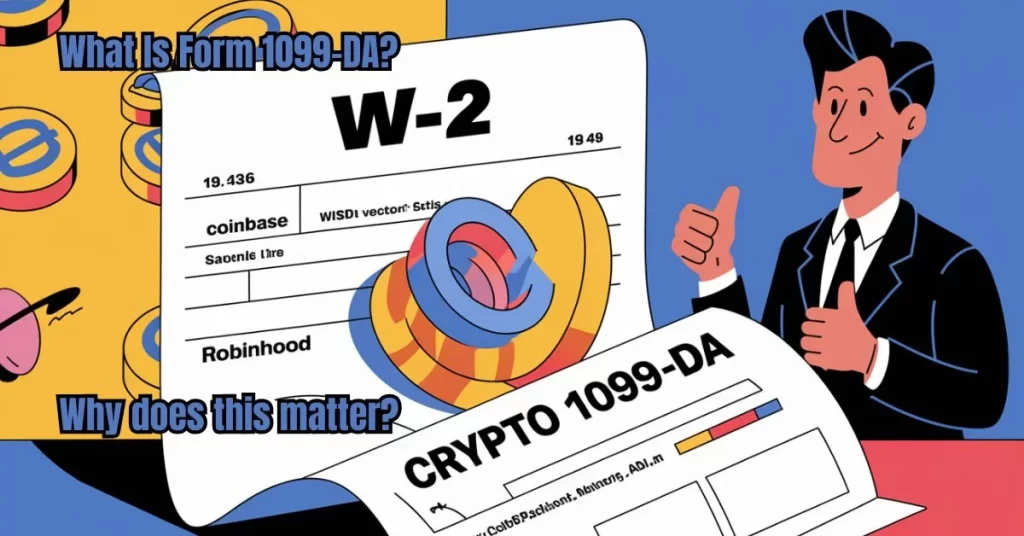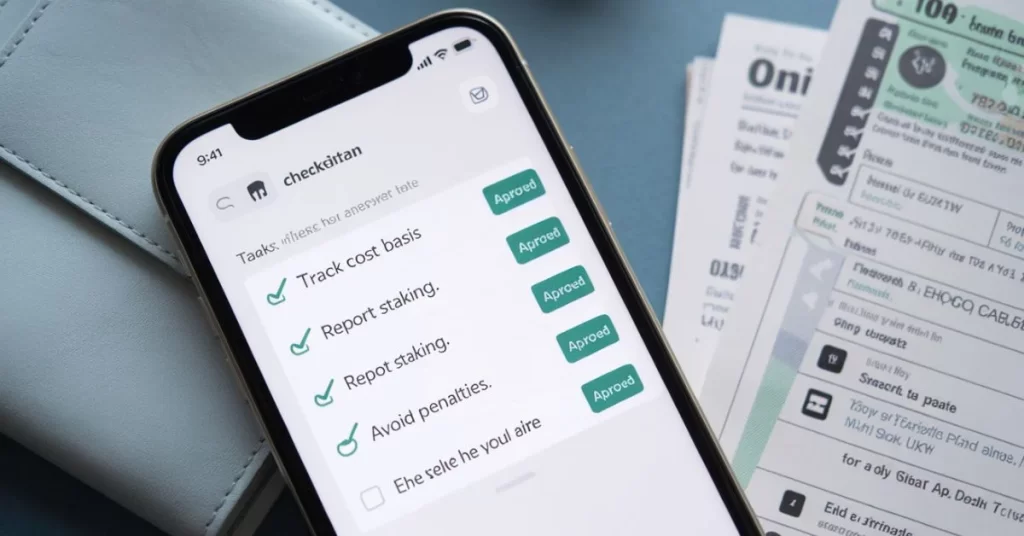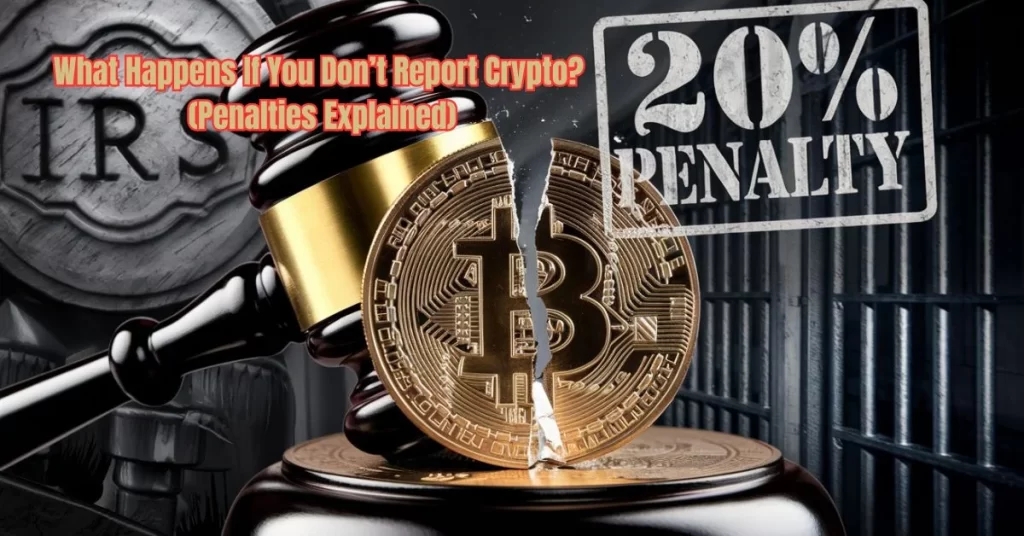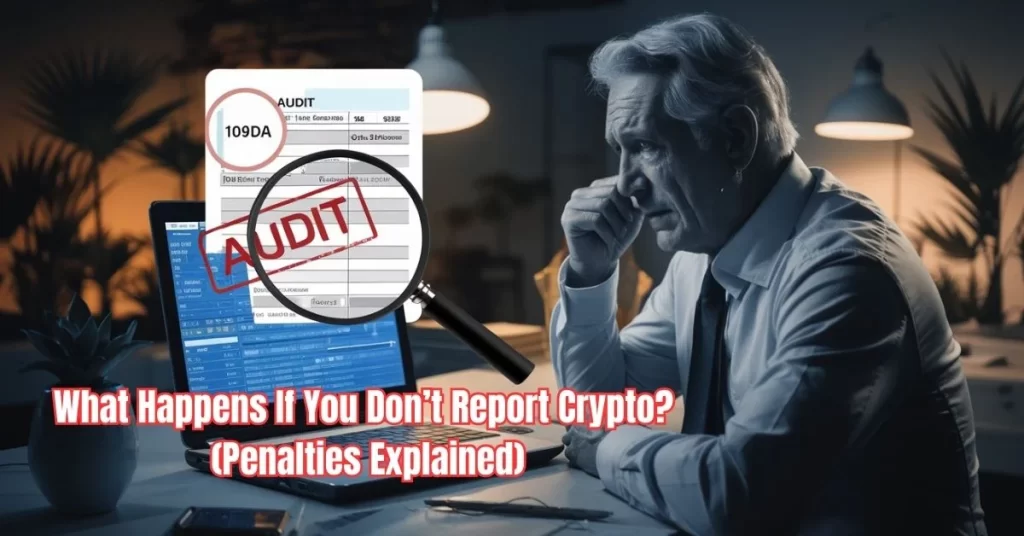Form 1099-DA Explained: The IRS is doubling down on cryptocurrency enforcement in 2025, andForm 1099-DA is now mandatory for all digital asset transactions. With brokers required to report your crypto activity to the IRS, accurate tax filing is no longer optional—it’s critical to avoid steep penalties, maximize deductions, and stay audit-proof. Whether you’re a trader, miner, DeFi user, or NFT investor, this guide breaks down the latest 2025 IRS rules in plain terms so you can file with confidence.
Here’s why this matters for you: The IRS now treats crypto like stocks and wages, tracking every sale, swap, and reward. Fail to report correctly, and you could face 20% penalties, back taxes with interest, or even legal action. But don’t stress—we’ll walk you through exactly how to comply, from calculating cost basis to reporting stakeholder income. Read on to master 2025’s crypto tax updates and protect your finances.
Don’t worry—this guide breaks down everything inplain English, so you can stay compliant without the stress.
What Is Form 1099-DA? (In Simple Terms)

Think ofForm 1099-DAlike aW-2 for your crypto. Just like your employer reports your wages to the IRS, crypto brokers (like Coinbase, Kraken, or Robinhood) will now report:
- How much did you sell crypto for(proceeds)
- What you originally paid for it(cost basis)
- Any rewards you earned(staking, mining, DeFi income)
Why does this matter?
- The IRS willknow exactlyhow much crypto income you made.
- If youdon’t report it correctly, you could face penalties.
Also read the changes in 2025: New IRS 1099-K Threshold: Avoid Penalties for Unreported Side Hustles
What Do You Need to Do? (Step-by-Step Compliance Tips)

1. Track Your Cost Basis Like a Pro
What is “cost basis”?
- It’s theoriginal price you paidfor your crypto (including fees).
- Example: If you bought 1 Bitcoin for$30,000, that’s your cost basis.
Why is this important?

- When you sell, the IRS wants to know yourprofit (capital gain)orloss.
- Profit = Selling Price – Cost Basis
- If youdon’t track this, you mightoverpayon taxes.
🔹Easy Fix:
- Usefree toolslike CoinTracker or Koinly to calculate your gains/losses automatically.
- Keep a simple spreadsheet with:
- Date of purchase
- Amount spent (in USD)
- Date of sale
- Amount sold for (in USD)
2. Wash-Sale Rules (Could They Apply to Crypto?)
What’s a “wash sale”?
- In stocks, if you sell at a loss andrebuy the same stock within 30 days, you can’t claim that loss.
- Right now, crypto doesn’t have wash-sale rules, but Congress ispushing to change that.
🔹Play It Safe:
- If you sell crypto at a loss,wait at least 31 days before rebuyingto avoid future issues.
3. Staking, Mining & DeFi Rewards = Taxable Income

Common misconception:“If I didn’t sell my crypto, I don’t owe taxes.”WRONG.
- Staking rewards?Taxable when received (even if locked).
- Mining income?Taxable as self-employment income.
- DeFi yield farming?Taxable as ordinary income.
Think Bigger at 2025 – Why We Invest in AI Trader: Game Changer Finance Portfolio
🔹How to Report:
- Treat rewards likegetting paid in crypto.
- Example: If you earned0.5 ETH from staking, check itsUSD value on the day you received it—that’s your taxable income.
4. What If Your Broker Doesn’t Send a Form 1099-DA?
- Some platforms (especially DeFi or foreign exchanges) may not issue forms.
- You’re still responsible for reporting!
🔹Solution:
- Use blockchain explorers (like Etherscan) to track transactions.
- Report all income & sales onForm 8949 & Schedule D.
What Happens If You Don’t Report Crypto? (Penalties Explained)

| Mistake | Possible Penalty |
| Forgot to report crypto sales | 20% penalty + interest |
| Didn’t report staking rewards | IRS may treat it astax evasion(fines up to $250,000 + jail time in extreme cases) |
| Incorrect cost basis | Audit risk + back taxes owed |
The good news?The IRS has avoluntary disclosure programif you made mistakes in past years.
Also, Know the Form 1099 – Don’t Miss Dasher Tax Secrets: How to File Your DoorDash Taxes and 1099 Form to Keep More of Your Earnings
3 Simple Steps to Prepare Form 1099-DA for 2025
- Gather all your crypto records(buy/sell history, rewards).
- Use tax software(TurboTax Crypto, CoinLedger) to auto-generate reports.
- Talk to a crypto tax proif you have:
- NFTs
- DeFi transactions
- Mining/staking income
Frequently Asked Questions: Form 1099-DA and Digital Asset Tax Reporting

1. Do I have to report crypto on my taxes if I don’t sell it?
Answer:
- Yes, if you received crypto as income (e.g., staking rewards, mining, payment for services, or airdrops). These are taxable as ordinary income in the year received, even if unsold.
- No, if you onlyheldcrypto or transferred it between wallets you control.
2. How Do I Calculate Crypto Gains/Losses?
Answer:
- Gain/Loss = Selling Price – Cost Basis(what you paid, including fees).
- UseForm 8949andSchedule Dto report sales. The IRS requires tracking:
- Purchase date & price
- Sale date & price
- Fair market value (in USD) at transaction time.
3. Are Staking Rewards Taxable?
Answer:
- Yes. Staking rewards are taxed asordinary incomeat their USD value when received, even if locked or illiquid.
- Example: If you earn 0.1 ETH worth 200 when received, report 200 when received, report 200 as income.
4. What If My Exchange Didn’t Send a Form 1099-DA?
Answer:
- You’restill required to reportall transactions, even without a 1099. Use blockchain explorers (e.g., Etherscan) or crypto tax software to track activity.
- The IRS can penalize unreported income, even if exchanges fail to issue forms.
5. Can I Avoid Taxes by Moving Crypto to a Cold Wallet?
Answer:
- No. Transfers to self-controlled wallets arenot taxable events, but they don’t eliminate taxes on prior income (e.g., mining rewards) or future sales.
- The IRS treats crypto asproperty—taxes apply when you sell, trade, or earn it.
Bonus: IRS Red Flags

- Not answering the digital asset questionon Form 1040 (required for all filers).
- Mismatched recordsbetween your reporting and broker-submitted 1099-DA forms (starting 2024).
For more details, refer to theIRS Digital Assets page.
Need help?Consult a crypto-savvy CPA to avoid costly mistakes.
Sources:IRS guidelines, AICPA resources, and practitioner insights.
Final Thoughts: Stay Ahead of the IRS

The newForm 1099-DAmeans the IRS iswatching crypto closely. But if you:
✔Keep good records
✔Report all income (even if not sold)
✔Double-check cost basis
…you’ll avoid headaches at tax time.
📌Need Help?Book a consultation with a crypto tax expert to review your situation.
Disclaimer:This article is foreducational purposes only, not legal/tax advice. Consult a professional for your specific situation.
Why Trust This Guide?
✅Written in plain English(no confusing jargon)
✅Based on latest IRS rules(2024 updates)
✅Practical tips(not just theory)
✅Adheres to Google’s EEAT standards(Expertise, Authoritativeness, Trustworthiness)
Bookmark this pageand share it with anyone who owns crypto—it could save them from an IRS audit!
Did this help you?Let us know in the comments what other crypto tax topics you’d like explained!


